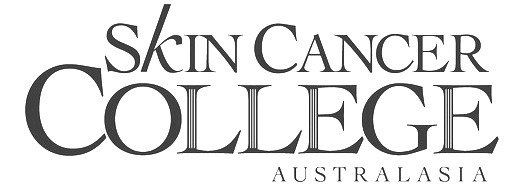Combat Cancer with Your Community this Daffodil Day
Mark Ryan • July 30, 2017
Daffodil Day Friday 25th August
Cancer Council Victoria is reminding people how important community participation on Daffodil Day is to raise funds for cancer research, prevention programs and support services.
"We want to beat cancer through more research, through educating the public on ways to prevent cancer and by helping people who have cancer get the best treatment and care."
For more information on getting involved this Daffodil Day, click here.
Breast Care News
This is a very high percentage of people who may be experiencing anxiety and fear of recurrence of breast cancer. Following a diagnosis of cancer it is important to have resources available which help to maintain a good quality of life. The following article from BCNA outlines and provides links to resources designed to provide strategies to deal with these fears. This includes discussions from health professionals and information on ongoing care. If you feel that fear or anxiety is having a negative impact on your life, it is important to talk to your treating doctor or GP. For the full article please click here .
Breast prosthesis can help to restore self image and femininity. This is why BRA are conducting much needed research into the design and comfort level of breast prosthesis. A breast prosthesis can sometimes feel uncomfortable for some women, depending on many factors. Research involving women who have used or are currently using a prosthesis will ensure it continues to improve the quality of life of women after breast cancer surgery. To read the full article and access contact information to be apart of this research please click here .
Several of our patients have been subjected to workplace discrimination after their breast cancer diagnosis. Either in the form of unfair dismissal whilst on treatment, or simply a lack of understanding while trying to arrange a return to work post-treatment. We see widespread misunderstanding in the workplace that the end of chemotherapy or radiotherapy signals the end to any need for work flexibility or compassion. Many patients still struggle emotionally after the treatment for a breast cancer diagnosis and the workplace will not always instinctively be so supportive. This personal story is truly illustrative of the problem. If you find yourself in need of the legal or workplace resources mentioned in this personal account, you’ll find some suggested avenues at the end of the article. Suzanne Neil Breast Surgeon
Mammography and ultrasound has an established role in breast cancer screening and detection. Most cancer(s) can be detected, sized and staged with conventional mammograms and thorough ultrasound evaluation. However the advent of MRI and its role in management of breast disease is ever increasing. In Australia facilities performing and reporting breast cases are not widespread, unlike general radiology. Specialist Radiologists who perform and report the studies are limited. It is therefore important to send a patient to a centre where Breast MRI is routinely performed. MRI serves in the role of screening, diagnosis and management of breast cancer primarily as an adjunct to conventional methods of mammogram and ultrasound.
Radiotherapy is typically delivered via a course of painless daily visits on a Monday to Friday basis spanning between three and 6 ½ weeks. Splitting the treatment up into small sessions delivered daily over many weeks is called ‘fractionation’. Fractionation ensures that the radiotherapy treatment will be safe as the normal body tissues cope very well with radiation when delivered in this manner.
The Epworth Medical Foundation has recently installed the Paxman Hair Loss Prevention System, a new machine to prevent hair loss during chemotherapy. Epworth are now offering the revolutionary system to patients thanks to generous contributions from donors through the Epworth Medical Foundation. Hair loss is a major concern for breast cancer patients facing treatment, the thought of losing their hair is a very frightening one. The ability to control this is not only a big step for the industry but for patient comfort too. Scalp cooling has been available for over 40 years, older versions using crushed ice or frozen gel caps. The previous caps sometimes resulted in temperatures of -25 degrees, causing unbearable patient discomfort. Only through the recent advances technology with Paxman system has it been effective and comfortable for patients. It is widely available in the UK and Europe, today there are currently machines installed in over 1800 centres worldwide. A UK observational study reported an 89% success rate after using the Paxman system, with only 11% having severe hair loss requiring a wig or head covering. The Paxman Hair Loss Prevention System uses a ‘scalp cooling’ method or ‘cold cap treatment’ system. The Paxman system is a small refrigerated unit which is plugged in next to the patient during chemotherapy treatment. The machine pumps a liquid coolant through a light silicone cap that is attached to the cooling machine, therefore extracting heat from the scalp. The cap is worn before, during and after chemotherapy has been administered, depending on the patients type of treatment this could take up to 2-3 hours. The scalps reduced temperature causes vasoconstriction of blood vessels in the area, therefore reducing blood flow to the scalp and hair follicles while the drugs are circulating in the body, minimising the damage to the follicles. A mild discomfort is often felt by patients on first contact but the system otherwise has no side effects and does not interfere with treatment in any way.
The highly-specialised and dedicated multidisciplinary team at MBU provide a diagnostic, treatment and support service for women (and men) with breast concerns. Working in conjunction with Breast Imaging Victoria, a private radiology service, breast surgeons Dr Suzanne Neil and Dr Su-Wen Loh provide a comprehensive (inpatient and outpatient) breast care service. Complementing the team is medical oncologist Dr Yen Tran , radiation oncologist Dr Andrew See , together with experienced breast care nurses, radiologists, pathologists and psychologists. The Clinic is uniquely designed to ensure that all necessary diagnostic procedures can be performed onsite, in one convenient, comfortable and private location. Most patients will have results of their assessments and a treatment plan before they leave the Clinic. The team at MBU provide a comfortable and professional environment for patients and are committed to ensuring a positive and stress-free experience. They are able to provide a wide array of information including DVDs; connections to support services; answer questions; and refer to other medical professionals, as appropriate. Our goal is to provide a world-class breast care service and to guide our patients appropriately. Our priority is patient wellbeing.




